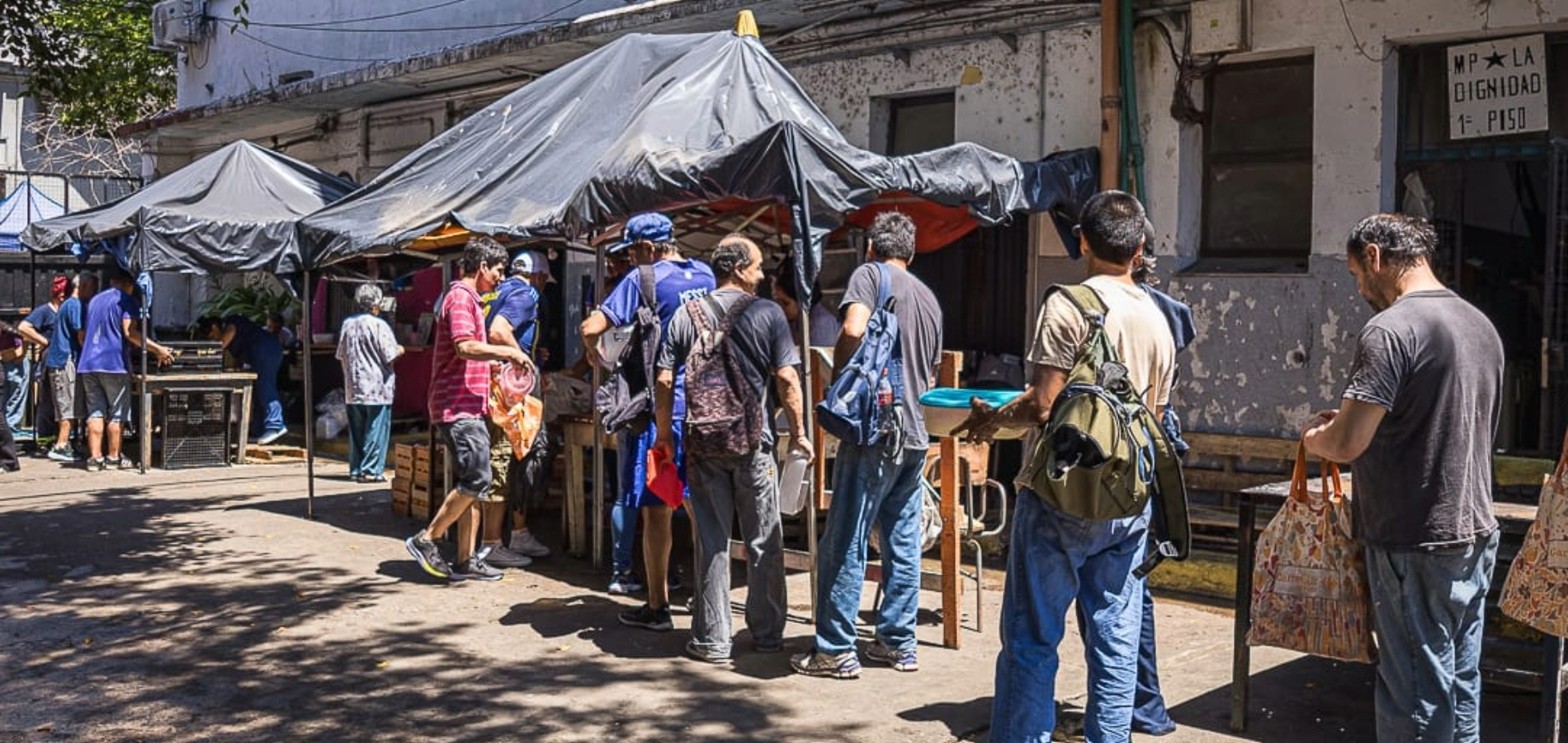
Words: Josefina Salomón Photos: Patricio A. Cabezas y Leonardo Fernández
Marianela Abasto, 24, had never been to a soup kitchen before. Now, she sits on an old school chair in a busy courtyard outside of one, eating a ravioli stew from a disposable plastic container.
She and her four-year-old daughter, Alma, wait for her husband, Saul, 36, to finish having a shower inside the facility, which also offers hygiene services. It’s an unusually warm November afternoon in Buenos Aires, and Abasto looks exhausted.
Over the past year, Abasto lost her home. She blames the Argentinian government for her present circumstances.
“This is very hard. Before, we had a home. We had access to subsidies. But [the government] suddenly took everything away,” Abasto told Al Jazeera, her face a mix of sadness and resignation. “I don’t know what we are going to do.”
Abasto is one of the increasing numbers of Argentinians who fell deeper into poverty during the first year of Javier Milei’s presidency.
For nearly 40 years, Argentina’s poverty level had consistently hovered above 25 percent. But since the far-right Milei took office on December 10, 2023, that figure has skyrocketed.
Over the last year, the poverty rate reached nearly 53 percent, according to official figures. This is the highest in 20 years, according to a research team at the Argentine Catholic University (UCA) that has kept track of key economic indicators.
That spike has led experts and advocates to increasingly question Milei’s “chainsaw” approach to slashing public spending — and its consequences.

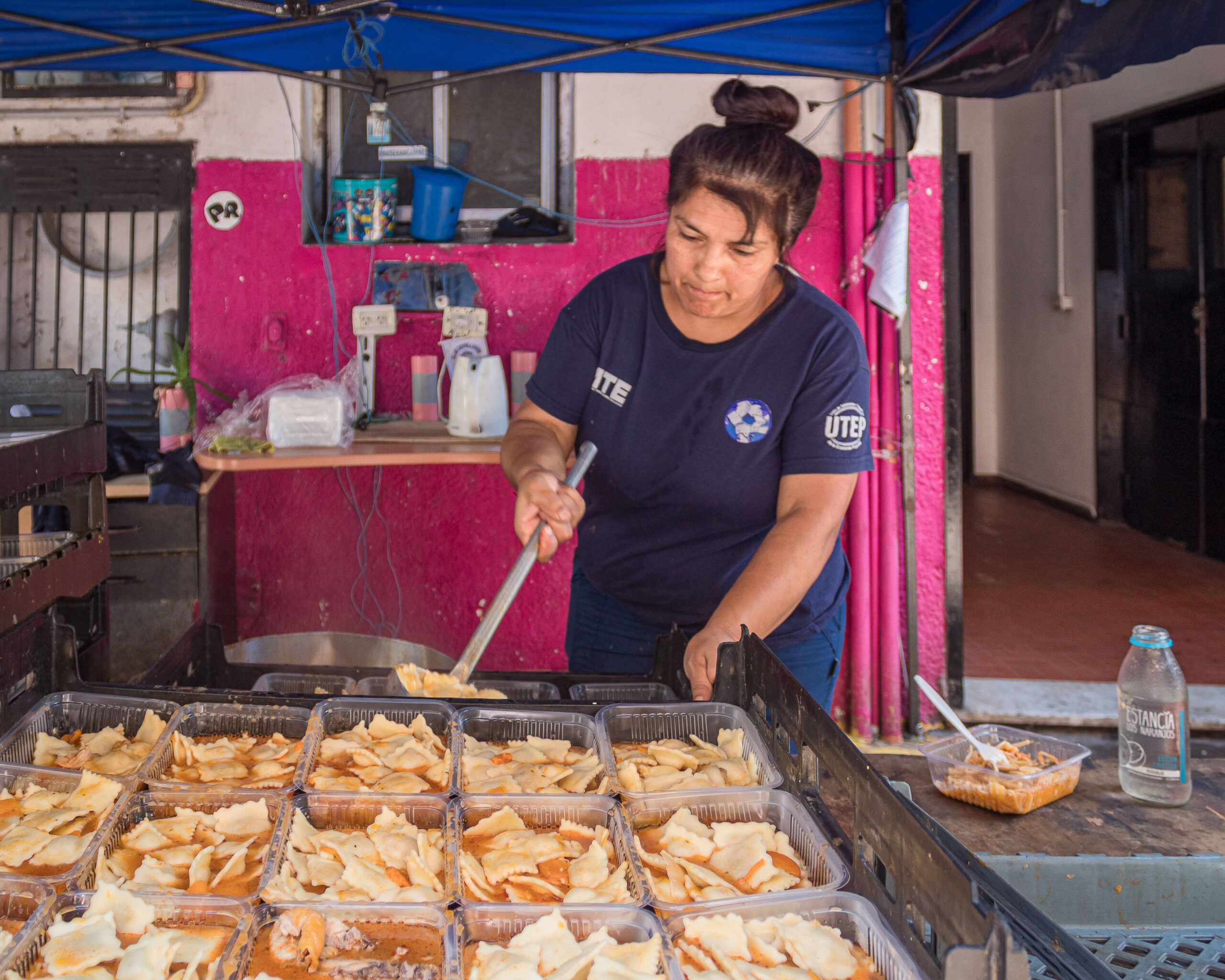




Eduardo Donza, one of the experts behind the UCA study, warned that those who fell under the poverty line this year included people with jobs and higher education.
“This is the result of a number of structural issues, including the drastic devaluation of the peso, which was part of Milei’s ‘shock’ economic plan,” Donza told Al Jazeera. “Argentina is a very particular country where these types of devaluations directly impact prices.”
Donza is critical of Milei’s sweeping changes to the economy, which he warned could backfire.
“The outlook is challenging,” Donza told Al Jazeera. “The government believes that, by fixing the macroeconomic variables, they can fix the overall economy, but that doesn’t necessarily work in practice.”
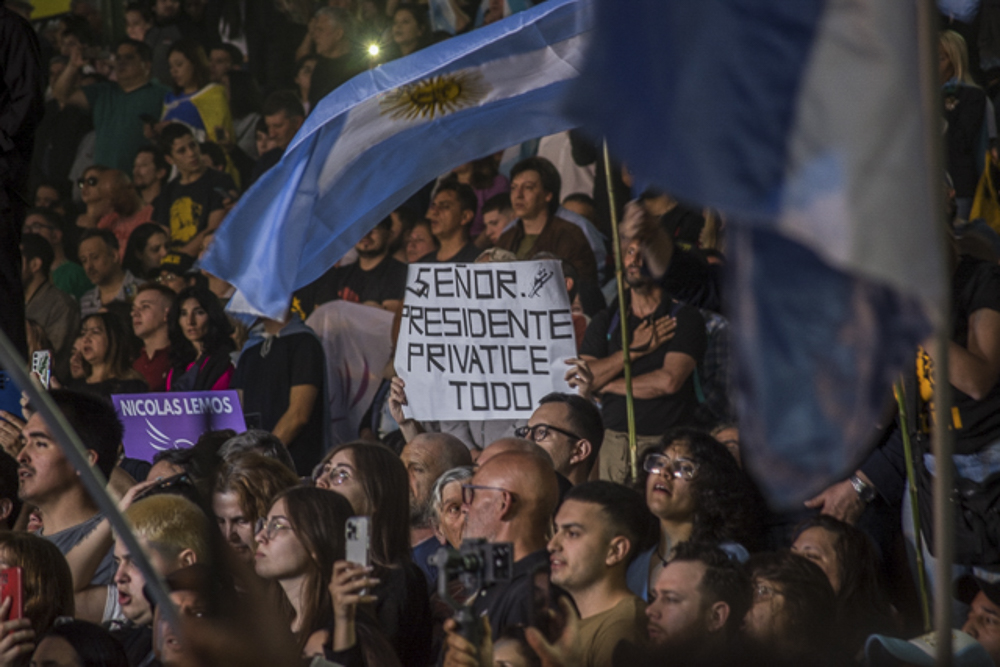
Until recently, Abasto and her family lived in a small flat in a neighbourhood — or “barrio” — called Padre Mugica, one of the largest slums in the Argentinian capital.
Saul, an electrician, made just enough money for rent and food while Abasto did odd jobs to cover the rest. Both were struggling to find work.
But two months ago, their rent mushroomed from 90,000 Argentinian pesos to 150,000 — a leap from roughly $88 to $148. It was beyond their ability to afford.
Since then, the family has been living on the streets, collecting cardboard to sell, asking restaurants for leftovers and looking for work. Saul even carries his tools in a small black backpack, just in case an opportunity presents itself.
Abasto did not have a formal contract with her former landlord. But even among residents who do, changes under Milei have affected their ability to pay their rent.
Argentina’s rent-control law was one of the first casualties of the Milei administration when it took power last December.
Initially a dark horse for the presidency, Milei successfully campaigned on a promise to peel back regulations and fix Argentina’s ailing economy.
The apartment rental market was one of the initial areas to receive what Milei has called his economic “shock therapy”. Without rent control, the supply of available properties has surged, and owners have been able to adjust rents to better reflect inflation. Rents can be increased every three months.
But low-income workers said the lack of protections have caused price hikes they cannot afford.
Other economic policies have likewise produced mixed results. Milei pursued a platform that included cuts to public spending, among them subsidies for public transportation, education and social programmes.
Those measures have helped achieve a balanced budget and the lowest monthly growth in inflation in three years.
But there’s also been a decrease in economic activity. Supermarket sales have dropped, and unemployment has increased. Without price controls for services like electricity and gas, utility rates have also spiralled higher.
Spending on gas, for example, increased by 715 percent between last December and October. Soup kitchens like the one in Buenos Aires have already switched to cooking over burning wood, in order to save money on gas.
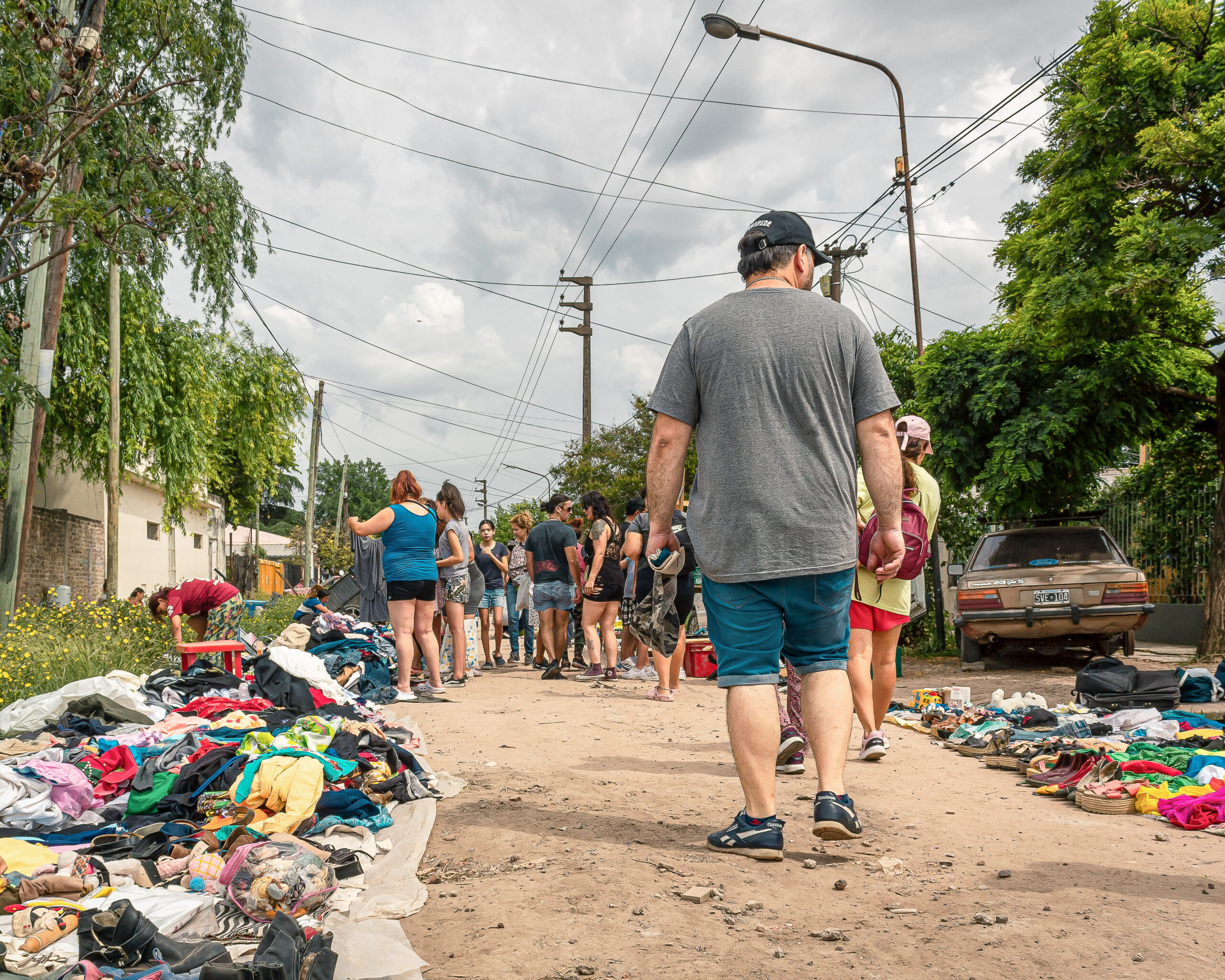
Nevertheless, Milei enjoys a relatively high public approval rating. A survey conducted for Bloomberg News showed him with nearly 47 percent support as of November.
But Donza, the researcher at UCA, said the short-term gains may conceal trouble ahead, particularly for Argentina’s most vulnerable groups.
“They thought the economy was going to improve automatically, and that is just not happening,” Donza said of the government. “What we need is long-term policies and measures to develop Argentina’s industry for the long run.”
Already at the soup kitchen in Buenos Aires, public opinion has started to sour.
Outside the building, a long queue of people holding empty food containers, pans and even buckets waits for food under the scorching November sun.
There are women holding young children, pensioners and teenagers. It’s midday, but some of the soup kitchen’s clients arrived as early as 7am to secure a spot in line.
“This year has been a disaster. Nobody has any money,” Ines Fernandez, an 80-year-old merchant who sells packets of pocket tissues, told Al Jazeera as she stood in the queue for a meal.
She and her daughter have been forced to live in a hotel room as rental prices crept beyond their reach. Even basic food items like tomatoes have become a luxury.
“Last year, we used to be able to make these salads with lettuce, tomatoes and carrots. We used to buy a kilo of tomatoes for each large salad,” Fernandez said. “Now we can barely put one in. Money is just too tight.”
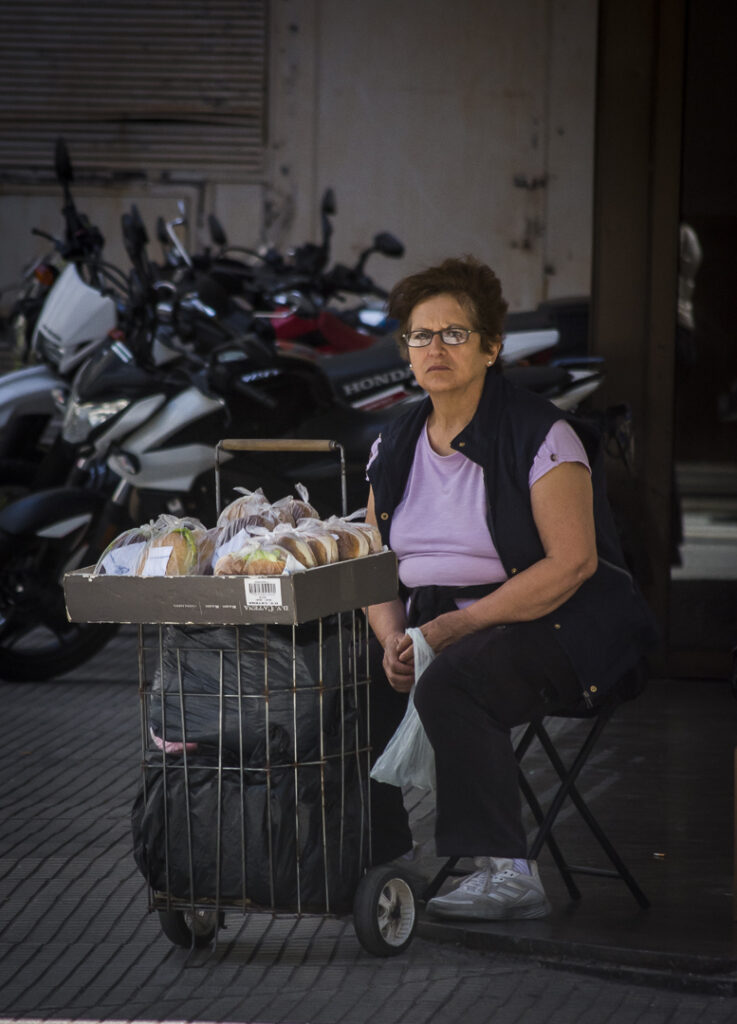
The soup kitchen is run by the Union of Informal Economy Workers (UTEP), an organisation that represents employees without contracts or in unregulated industries.
Those employees make up close to half of Argentina’s workforce. And poverty among the group is high.
But groups like UTEP have repeatedly clashed with Milei’s government over the past year, as government funds have dwindled.
Once Milei took office, UTEP says the government stopped sending food supplies to soup kitchens, which had been standard practice before.
Without assistance from the federal government, soup kitchens struggled to meet demand, according to UTEP organisers. They turned instead to support from local governments and individual donations.
“Finding donations is a struggle, so it feels like we have to make magic to cook for more people with the same amount of ingredients. This feels worse than during the pandemic,” said Laura Gotte, 50, one of the soup kitchen’s coordinators.
She noted that public demand was outstripping supplies, as poverty has increased. “Last year, we used to make 13 large pots [of food] three times a week. Now we cook 23 large pots, and it’s still not enough.”
In February, UTEP sued Milei’s administration to force it to deliver an estimated 6,000 tonnes of food being stored in government warehouses. In October, a federal judge ruled in UTEP’s favour, but the food has yet to be delivered, as the case is being appealed.
Milei and his allies, meanwhile, have accused the soup kitchens of corruption, without offering proof.
Advocates said Milei has taken a combative approach to social outreach programmes, even as the increasing poverty rate heightens demand for their services.
“There’s a demonisation of social organisations and of women in particular,” said Fernanda Miño, 49, a community leader from La Cava, a marginalized neighbourhood in the greater Buenos Aires area.
Before Milei took office, Miño was in charge of a federally funded programme to improve infrastructure in underdeveloped areas. Its work included building homes, paving roads and installing water, electricity and sewage service.
But funding for the programme was cut after Milei accused Miño of corruption this year. Since then, a government investigation has found no irregularities in her work.
Nevertheless, in October, armed federal police entered Miño’s house, allegedly looking for a stolen vehicle. She said the raid was part of ongoing government harassment.
“They attack us because we are women and because we are poor,” said Miño, sitting in the living room of her home in La Cava. “I resent the fact that they think that because we are women from the barrios we cannot do anything other than stir a soup pot, that we can’t lead projects.”
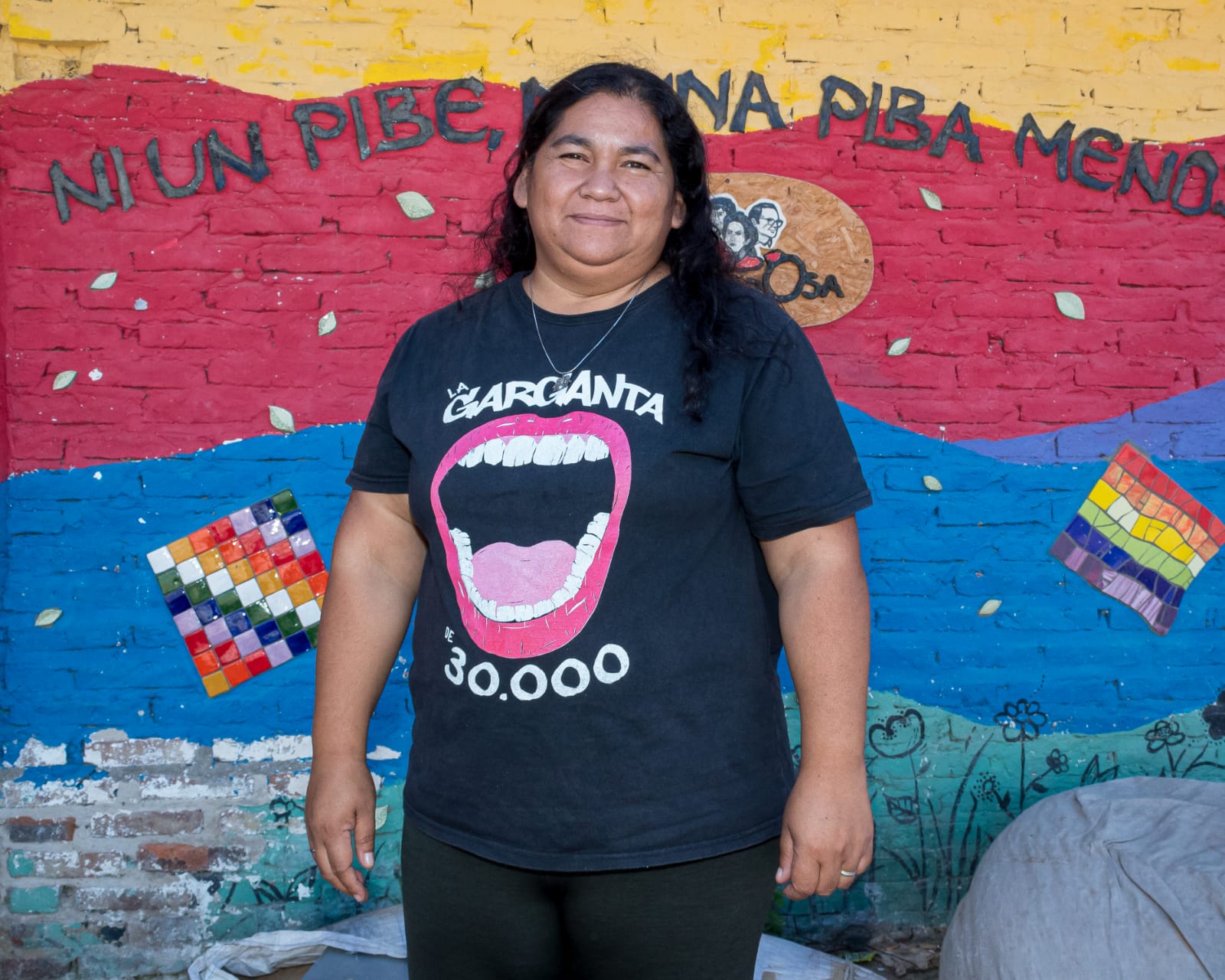
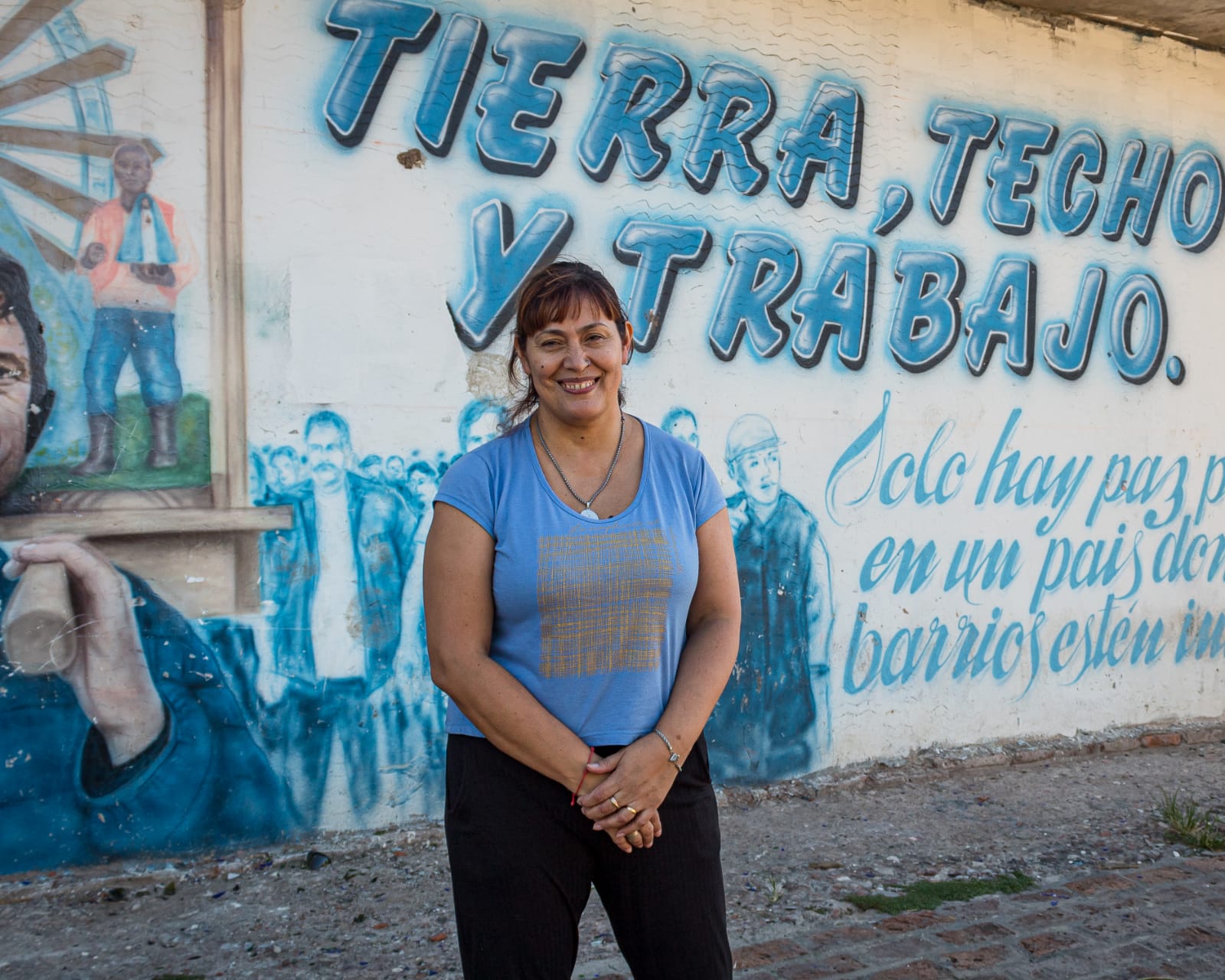
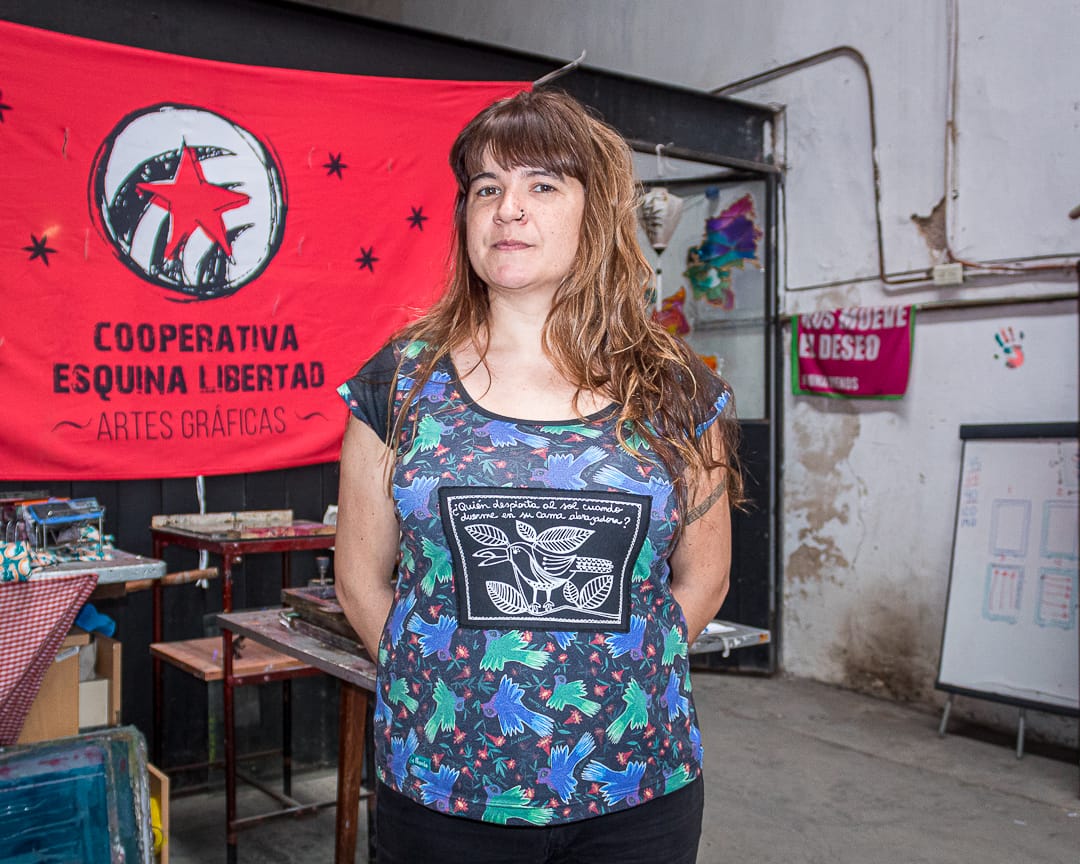
In lieu of addressing poverty through community programmes, Milei’s government has suggested a more individual approach.
When confronted by protesters in February, Sandra Pettovello, the minister of human capital, told them she would prefer to deal with individuals directly, rather than community groups.
“I will assist one by one the people who are hungry, not their representatives,” Pettovello said. “Come one by one, and I’ll write down your ID. I am going to write down their names, where they are from, and they will receive help individually.”
But community leaders said that system is impractical, given the scale of the problem. After all, Argentina has a population of more than 45.5 million people, more than half of whom are impoverished.
“Receiving help individually, a little bit each, just doesn’t work,” said Daiana Aquino, a 32-year-old mother of one from La Cava. “What works is when we organise and, together, do the work that our community needs and in places where no government ever comes.”
Aquino is part of a local cooperative in charge of cleaning streets, collecting rubbish and maintaining electrical connections. But over her lunch break, she told Al Jazeera that, as a result of Milei-era funding cuts, she is barely surviving.
Back in the soup kitchen, Gotte, the coordinator, smiles. She believes the only way forward is to invest in the community as a whole.
“This government wants people to think only about themselves, to save themselves, but we think that the only way forward is to work together. Together we are always stronger.”
This story was originally published in Al-Jazeera.